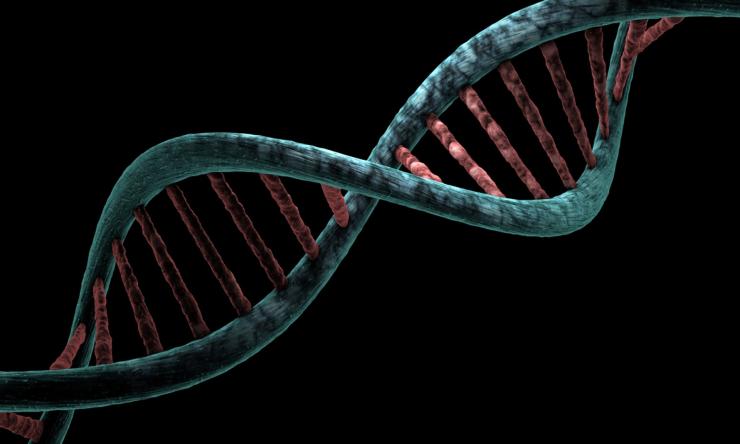NCI-COG Pediatric MATCH study shows benefit of genetic screening in refractory tumors
Cancer therapies targeting specific genetic mutations may offer benefits to patients for whom other standard chemotherapy treatments have not effectively treated their tumor. However, genetic screening of tumors is not routinely performed for pediatric and young adult cancer patients. To increase access to tumor genetic screening and study the utility of this strategy, the National Cancer Institute (NCI), part of the National Institutes of Health, and the (COG) partnered to create the NCI-COG Pediatric MATCH trial (). Since 2017, more than 1,000 patients have been enrolled in this nationwide protocol, which uses tumor sequencing to find actionable genetic mutations (those that might predict response to specific treatments) to match patients to 13 different phase 2 clinical trials of molecularly targeted therapies.
The first results of this groundbreaking study, conducted at Children’s Oncology Group member sites across the United States by a collaborative team including lead investigators at ˛ÝÁńÉçÇřČëżÚ and Texas Children’s , have been published in the . Analysis of the first 1,000 patients showed that tumor sequencing was effective in finding actionable tumor mutations in pediatric and young adult cancer patients with refractory solid tumors, lymphomas or histiocytic disorders. Actionable mutations were found in 31% of tumors with 28% of patients assigned to a phase 2 clinical trial treatment arm of the study.
“This nationwide screening approach was effective at finding actionable genetic mutations that could guide decision-making for targeted therapy,” said , corresponding author and study chair, associate professor of pediatrics – hematology and oncology at Baylor and deputy director of Texas Children’s Cancer and Hematology Center. “These results support the use of molecular screening for children and young adults with cancers that are recurrent or refractory to current frontline treatments.”
“The scope of the NCI-COG Pediatric MATCH was truly remarkable, with 138 COG institutions from across the United States enrolling at least one patient on the screening study,” said , chair of Children’s Oncology Group. “Most importantly, the NCI-COG Pediatric MATCH provided access to molecularly targeted therapy to children and young adults who had the greatest need for innovative treatment, those with recurrent or refractory cancer.”
“Pediatric MATCH is an excellent example of a private/public partnership that enabled this study to be done in such an efficient manner,” said , head of Pediatric Solid Tumor Therapeutics in the Clinical Investigations Branch of the Cancer Therapy and Evaluation Program of the NCI and study co-author. “It was inspiring to see how pharmaceutical companies were so willing to support the Pediatric MATCH trial to the extent that some companies even reached out to the Pediatric MATCH team to see if they could participate. Based on collaboration with the FDA, we were able to safely include some targeted agents that had not previously been tested in children and adolescents.”
A second study also published in the reports the results of the first phase 2 treatment trial to be completed as part of the NCI-COG Pediatric MATCH study (). This trial, which also included lead investigators from Baylor and Texas Children’s, tested the MEK inhibitor selumetinib in children and young adults with tumor mutations in genes of the MAPK pathway, a key biological driver underlying many types of cancer.
In 20 patients with aggressive cancers that had progressed despite standard treatments, the drug showed limited efficacy; the best response was disease stabilization in three patients. Given that selumetinib has shown benefit for treatment of other cancer types, the results of this trial indicate that response to selumetinib treatment cannot be predicted by the presence of MAPK pathway mutations alone.
“Selumetinib has been shown to be very effective in treating low-grade tumors. However, despite the presence of MAPK pathway mutations, selumetinib did not have a major anti-tumor impact for most patients in this group with aggressive cancers that also had multiple other genetic mutations,” said , corresponding author and study chair, professor of pediatrics, division of hematology and oncology at Baylor and co-director of the histiocytosis and lymphoma programs at Texas Children’s Cancer Center. “This study was successful in being able to rapidly recruit patients with MAPK gene mutations to a clinical trial testing safety and efficacy of a drug that specifically targets MAPK activation. The results point to the need to look broadly at the genetic landscape of tumors to predict tumors that may be effectively treated by a single agent versus those that may require multiple agents. This study represents an important early step in developing strategies for personalized therapy for aggressive cancers.”
This work was supported by the National Cancer Institute of the National Institutes of Health (CA180886, CA180899, CA196173) and by the St. Baldrick’s Foundation. See the publications for a full list of study authors. Study is supported by NCI and AstraZeneca through a Cooperative Research and Development Agreement.




